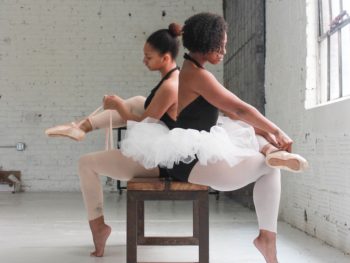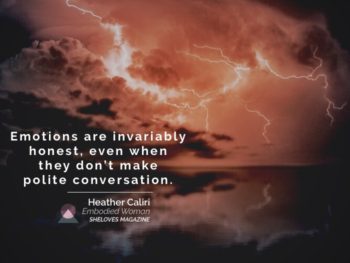
The slogan caught my eye as I turned a corner inside the Humanities building: “Well-Behaved Women Seldom Make History.”
Later, I’d discover that Laurel Thatcher Ulrich, the writer who penned the phrase, had done so almost off-hand, in an obscure work about Puritan funeral services. I’d learn that it became a feminist catchphrase without her help, and was often used out of context. I would find that Ulrich, a practicing Mormon, wasn’t trying to denigrate the histories of ordinary, domestic women, but instead, illuminate them.
But at the time, I assumed the phrase was attacking me: a well-behaved, white, upper-middle class Christian housewife. I felt a flare of anger and shame, and ducked my head. I tried to pretend the slogan wasn’t there.
The building, which was shaped like a squared-off figure eight, was easy to get lost in. You went around corners so often that you lost all sense of direction; the decrepit state of repair and the bleak décor only added to the disorientation.
I found the staircase I’d been hunting for and went up another floor to the English department.
As I ascended the staircase, I turned the phrase over in my head. Well-behaved. Make history. Women.
I wondered why I’d have to behave badly to make history. I wondered if that was something I’d want. If that was something God would want for me.
What I didn’t wonder was this: Well-behaved by the standards of whom?
When Being Well-Behaved Shamed Me
It was my first semester in the Creative Writing Master’s degree program at San Diego State University. I felt pleased and excited to write so much.
But it also wasn’t what I’d expected.
My first fiction professor, Hal, was a writer of very experimental political pieces, with titles like “Terror-Dot-Gov.” In class, he told us writing should be political, should ad issues in the world, should engage in social justice.
Also, he said “dialectical” about every other sentence.
During Hal’s political rants, I’d look down at my stories, full of white, upper-middle-class family problems, and feel my stomach twist.
I rounded a few more corners as I made my way to the MFA copy room, mentally arguing with the whoever had posted the slogan.
Was there something wrong with just being a nice Christian girl? Was I not enough? Does every woman have to burn her bras to be significant?
I hated feeling judged.
But even as I fumed, I knew my anger mostly revealed something about me. I felt shame. I was not significant. I wasn’t brave. I would never raise my voice.
How I Didn’t Notice My Own Bravery
What makes me ache about remembering this moment is how much I sold myself—and my womanhood—short. I could not yet see my own bravery, how I’d keep writing in the face of post-partum depression, pushback from loved ones, and deep, unrelenting fear. I didn’t see that my shame about not being “political” underscored how I longed to ad issues of injustice, but assumed I had nothing to contribute.
I didn’t know that when I became a mother two years later, something would break in my heart. I realized then that it bothered me that my femininity didn’t seem represented in my faith.
The almost exclusively masculine imagery for God I’d learned made me feel excluded. Did a God described in masculine terms mean that I didn’t count?
I winced when I read the rapes and sexual violence written, without comment, into the Scriptures.
I couldn’t bear to face the parts of church history that diminished or demonized women.
But when I started digging, I noticed all the women in the Bible who didn’t conform to their patriarchal cultures: Deborah, Ruth, Mary with her hierarchy-shaking Magnificat. I noticed God described as a midwife, a mother hen, and Eve described by the Hebrew word ezer, the same strong word used to describe God’s rescuing help for his people. I noticed Jesus treating women with respect.
As Suzanne said in Reclaiming Eve, “I never would have guessed how highly God thinks of his daughters. I hadn’t understood how invaluable we are to his kingdom.”
Paying Attention to My Significance Helped Me Reclaim My Voice
After I saw my worth through God’s eyes, his incredible power transformed me.
I started caring less about whether my niceness, and focused on living out love and justice.
I started seeing my words were significant, and that I wanted to use them.
And I noticed that I could speak up about injustice in my own way, for my own reasons, at my own pace. Not because a professor told me to, but because I felt called.
Instead of feeling like I needed to become someone I wasn’t in order to please Hal, or Laurel Thatcher Ulrich, or other Christians, I started worrying about pleasing God instead.
Doing that made me come alive.
I assumed, walking down that hallway, that Ulrich was trying to shame me into becoming someone else. Someone unChristian, offensive, and impossibly brave. I assumed I could never feel empowered, and I assumed that God agreed.
I didn’t know that like Ulrich, I could have my own ideas about what “well-behaved” and “world-changing” looked like. I didn’t recognize my significance, just as God made me. I didn’t know He was cheering me on.
As I remember trying to find my way in that impossibly mixed-up building, I cheer my old self on too. I had no idea what was waiting for me, just around the next corner.
(Originally on Suzanne Burden’s site for her series celebrating her book, Reclaiming Eve.















Love this! I’ve thought the same thing about that phrase. Thanks for redeeming it for me. 😊
You’re welcome. I was really gobsmacked when I learned the context of that quote. It was not at all what I expected 🙂